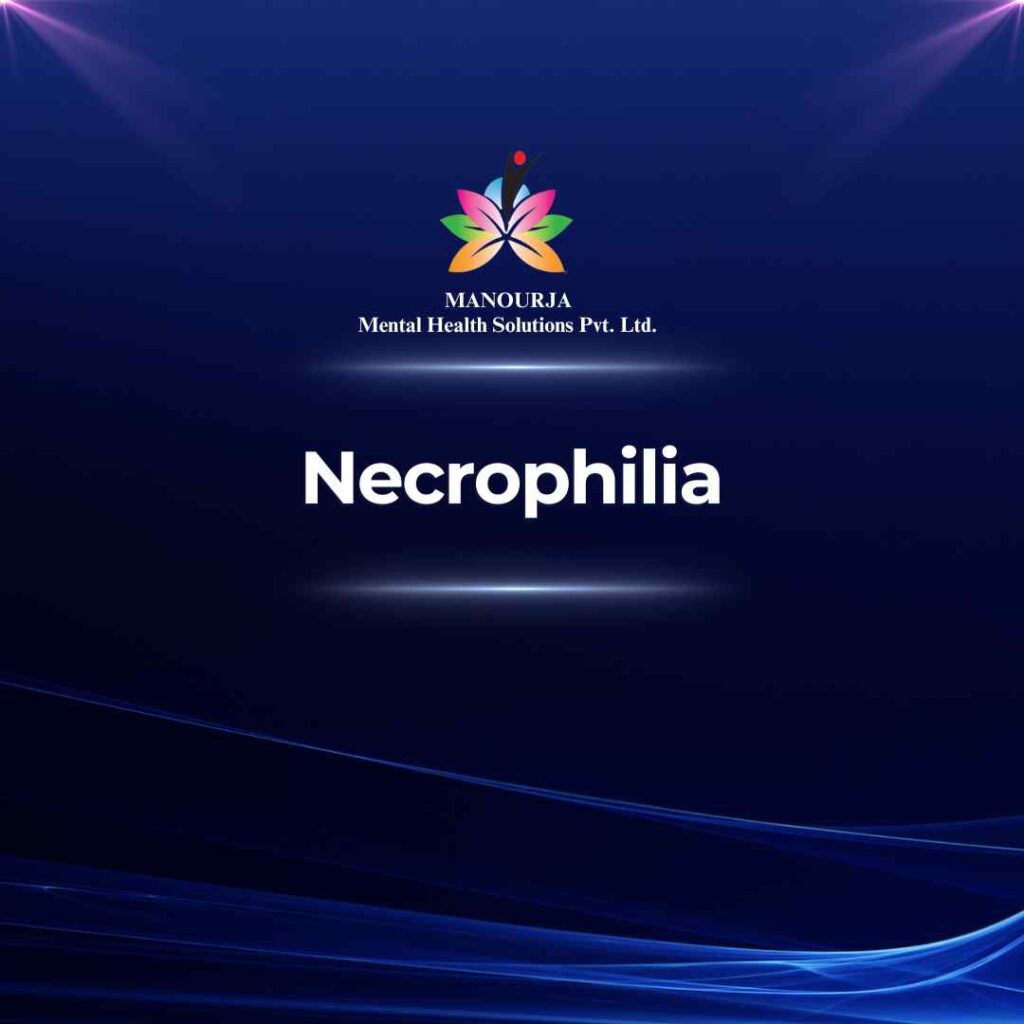Necrophilia

Necrophilia, also known as necrophilism or thanatophilia, is a paraphilic disorder characterized by a sexual attraction to corpses. The term derives from the Greek words “nekros” (dead) and “philia” (love). This condition is considered highly taboo and is illegal in many jurisdictions due to ethical, moral, and health-related concerns. Necrophilia is a rare disorder, and due to its sensitive and disturbing nature, it is not frequently discussed or studied extensively in clinical settings.
Symptoms of Necrophilia
- Sexual Attraction to Corpses: Individuals with necrophilia experience sexual arousal from dead bodies. This attraction can manifest as fantasies, urges, or actual sexual activities involving corpses.
- Compulsivity: The fantasies or behaviors are persistent and often intrusive, causing significant distress or impairment in social, occupational, or other important areas of functioning.
- Acting on Impulses: In some cases, individuals may act on these urges, which can involve illegal activities such as desecrating graves or mortuaries, or murdering to obtain a corpse for sexual purposes.
Forms of Necrophilia
Necrophilia can manifest in various forms, ranging from purely fantasy-based to actual physical interaction with a corpse:
- Necrophilic Fantasy: The individual has recurrent fantasies about sexual activity with a dead body but does not act on these fantasies.
- Regular Necrophilia: The individual engages in sexual activities with corpses.
- Homicidal Necrophilia: The individual commits murder to obtain a body for sexual purposes. This is the rarest and most severe form of necrophilia.
Treatment of Necrophilia
Due to the illegal nature of the behaviors associated with necrophilia, treatment is complex and must address both the psychological aspects of the disorder and the legal consequences. Here are some approaches used in treating necrophilia:
Psychotherapy
- Cognitive Behavioral Therapy (CBT): CBT is used to help individuals recognize and modify problematic behaviors and thought patterns, manage impulses, and develop healthier sexual interests.
- Psychodynamic Therapy: This approach may help uncover underlying psychological factors or trauma that may contribute to the development of necrophilic desires.
Pharmacotherapy
- Medication: While there are no specific medications for treating necrophilia, medications that reduce sexual drive, such as antiandrogens, or treat comorbid psychiatric conditions like SSRIs, may be utilized.
Legal and Ethical Management
- Compliance with the Law: Individuals diagnosed with or suspected of necrophilia need to manage their behaviors within the constraints of the law. Treatment often involves coordination with legal authorities, especially if the individual has committed crimes.
- Monitoring and Supervision: Ongoing monitoring by mental health professionals, possibly in conjunction with law enforcement, is crucial to prevent harmful behaviors.
Supportive Measures
- Support Groups: Finding support groups specific to necrophilia is challenging, but groups aimed at managing paraphilic disorders in general can provide support and coping strategies.
- Education and Counseling: Educating individuals about the legal and moral implications of their actions and helping them develop a moral compass that respects the dignity of human life and law.
Treatment for necrophilia must be highly individualized and managed by professionals experienced with paraphilic disorders. It often requires a multidisciplinary approach involving psychologists, psychiatrists, and legal professionals to address all aspects of the disorder effectively.
At MANOURJA, we believe in the transformative power of counseling. Our experienced therapists offer a safe and supportive space where you can explore your thoughts, emotions, and challenges. Through personalized counselling sessions, we’ll work together to develop coping strategies, build resilience, and achieve lasting positive change. Discover the path to a healthier, happier you with MANOURJA counselling services.
MANOURJA Rehabilitation Services
At MANOURJA, we’re dedicated to helping you in rebuild your life, after difficult times. Our rehabilitation services focus on understanding what you need to move forward, whether you’re recovering from addiction, trauma, or any psychological – social challenges. We create personalized plans, that are all about helping you, regain your strength and find hope again. With a caring team by your side, you’ll have the support to make real progress and take steps toward a brighter, healthier future.
